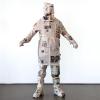Search Results
Showing results 41 to 60 of 60
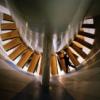
Wind Tunnel Testing
Source Institutions
In this activity, learners explore how wind tunnels provide feedback to engineers about the performance and durability of products such as planes, cars, and buildings.
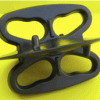
Air Pressure and Dent Pullers
Source Institutions
In this activity, learners simulate Otto von Guericke's famous Magdeburg Hemispheres experiment.
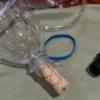
Water Rocket Launch
Source Institutions
In this activity, learners explore rocketry and the principals of space flight.
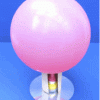
CD Air Puck
Source Institutions
In this activity, learners will use a compact disc to build an air puck that can glide across a smooth tabletop. The puck glides with almost no friction on a cushion of air escaping from a balloon.
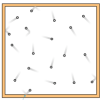
What Causes Pressure?
Source Institutions
In this kinesthetic activity that demonstrates pressure, learners act as air molecules in a "container" as defined by a rope.
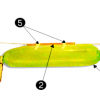
Balloon Rocket
Source Institutions
Experiment with force and pressure by building a balloon rocket. When launched, the balloon will run a track wherever you place the string.
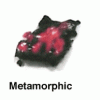
The Crayon Rock Cycle
Source Institutions
In this activity, learners use crayons to draw conclusions about rocks and the rock cycle.
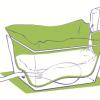
Make a Model Caldera
Source Institutions
In this quick activity (page 2 of PDF under GPS: Lava Flow Activity), learners will model how large depressions near the top of a volcano are formed by using an inflating and deflating balloon submerg
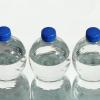
Physics in the Sky: Physics on a Plane
Source Institutions
On an airplane trip, learners have an opportunity to investigate the properties of air pressure at different altitudes.
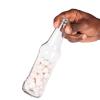
No Pressure
Source Institutions
In this activity, learners observe what would happen to their bodies if they went to outer space without a space suit.
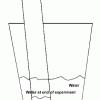
Percentage of Oxygen in the Air
Source Institutions
In this activity, learners calculate the percentage of oxygen in the atmosphere by using steel wool's ability to rust.

Measuring Wind Speed
Source Institutions
In this indoor and/or outdoor activity, learners make an anemometer (an instrument to measure wind speed) out of a protractor, a ping pong ball and a length of thread or fishing line.

Make Your Own Weather Station
Source Institutions
This three-part activity shows learners how to build three meteorology tools: a wind vane, a rain gauge, and a barometer.
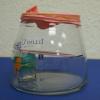
Design and Build a Barometer
Source Institutions
In this activity, learners make a barometer, an instrument to measure change in air pressure.
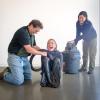
Feeling Pressured
Source Institutions
In this activity, learners (at least three) work together to explore the effects of atmospheric pressure.
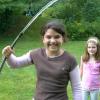
Gravity Fountains
Source Institutions
This activity (located on page 3 of the PDF under GPS: Glaciers Activity) is a full inquiry investigation into the forces of gravity and air pressure.

Geyser
Source Institutions
This Exploratorium activity can be used in many contexts because geysers are great opportunities for learning about heat and temperature changes as well as geological/space science phenomena.
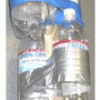
Portable Potable Pressure
Source Institutions
In this activity, learners use plastic water bottles, wood, and water to build an inexpensive and portable tool to demonstrate one atmosphere of pressure at sea level.
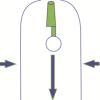
Cartesian Diver
Source Institutions
In this quick activity (page 1 of the PDF under SciGirls Activity: California Fish), learners will build a simple Cartesian Diver in an empty 2-liter bottle.

